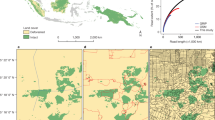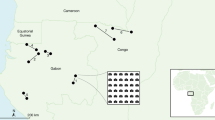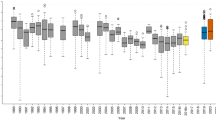Abstract
LIEUT.-COLONEL TULL WALSH'S observations as to the positions of nests (NATURE, December 16) are interesting, as they tally with the aspect of arboreal cryptogams, as already noted by me. South-west winds depositing sulphurous and nitrous products to leeward of towns cause lichens and mosses to flourish best on the eastern side of trees and hedges; and, moreover, this is general, for winds bearing spores from the south-west continually play on the trunks and blow away spores as they settle. If it were not for a kind of capillary attraction or rotary motion drawing the spores round the trunk to leeward, or east or north-east, they would never germinate. So the eastern side is the most productive, though often the western aspect may exhibit a greater abundance of species, though less well developed, from the continuous play of spores—and rain—upon the trunk.
This is a preview of subscription content, access via your institution
Access options
Subscribe to this journal
Receive 51 print issues and online access
$199.00 per year
only $3.90 per issue
Buy this article
- Purchase on Springer Link
- Instant access to full article PDF
Prices may be subject to local taxes which are calculated during checkout
Similar content being viewed by others
Author information
Authors and Affiliations
Rights and permissions
About this article
Cite this article
HORWOOD, A. Positions of Birds' Nests in Hedges. Nature 82, 279–280 (1910). https://doi.org/10.1038/082279e0
Issue Date:
DOI: https://doi.org/10.1038/082279e0
Comments
By submitting a comment you agree to abide by our Terms and Community Guidelines. If you find something abusive or that does not comply with our terms or guidelines please flag it as inappropriate.



